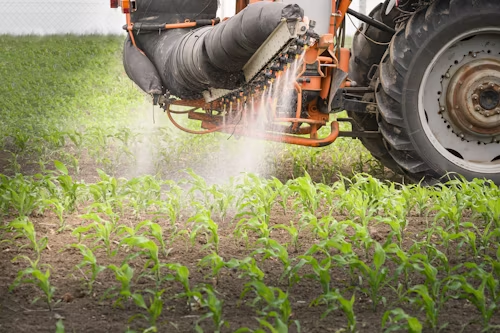
As a farmer or gardener, you’re likely no stranger to the world of fertilizers. What are the Differences Between Biofertilizer and Chemical Fertilizer? But with so many options available, it can be difficult to know which type of fertilizer is best for your crops. Two popular options are biofertilizers and chemical fertilizers, but they have some key differences that you should know about.
What are Biofertilizers? 
Biofertilizers are living organisms that promote plant growth and fertility. They’re typically made from natural ingredients like bacteria, fungi, and algae, and work by colonizing the soil and providing nutrients to the plants.
What are Chemical Fertilizers?
Chemical fertilizers, on the other hand, are synthetic substances that provide nutrients to plants. They’re often made from petroleum-based products and can be highly concentrated, providing a quick burst of nutrients to the plants.
Composition and Source
Biofertilizers are natural substances containing beneficial microorganisms such as bacteria, fungi, and algae. They help in fixing atmospheric nitrogen, decomposing organic matter, and improving soil fertility naturally. Chemical fertilizers are synthetic or mineral-based fertilizers manufactured using chemical processes. They primarily supply essential nutrients like nitrogen, phosphorus, and potassium (NPK) but do not contribute to soil microbial life.
5 Beneficial Differences Between Biofertilizers and Chemical Fertilizers
So, what are the key differences between biofertilizers and chemical fertilizers? Here are five things you should know:
1. Environmental Impact
Biofertilizers are generally more environmentally friendly than chemical fertilizers. They’re biodegradable, non-toxic, and don’t contribute to soil pollution or water contamination.
Chemical fertilizers can contribute to water pollution through runoff, leading to issues like eutrophication in lakes and rivers. Excessive use also results in greenhouse gas emissions, further impacting climate change.
2. Impact on Soil Health
Biofertilizers promote soil health by increasing the population of beneficial microorganisms, improving soil structure, and enhancing nutrient cycling. it also improves soil structure, increases microbial diversity, and enhances the natural nutrient cycle. They contribute to long-term soil fertility by maintaining organic matter and presenting soil degradation.
Prolonged use of chemical fertilizers can lead to soil acidification, loss of organic matter, and disruption of the soil’s microbial balance. Overuse may also cause soil compaction and decreased fertility over time.
3. Effect on Crop Yield and Quality
Biofertilizers enhance plant health naturally, leading to better-quality produce with higher nutritional value. However, their effects may take longer to become noticeable compared to chemical fertilizers.
Chemical fertilizers, on the other hand, can provide a quick burst of nutrients, but can also lead to overfertilization, reduced plant growth, and increased susceptibility to disease.
4. Cost and Long-Term Sustainability
Biofertilizers are often more expensive than chemical fertilizers, especially in the short term. However, biofertilizers can provide long-term benefits, such as improved soil health and increased crop yields, which can reduce costs over time.
Chemical fertilizers are often more expensive due to manufacturing costs and require frequent application. Long-term dependency can lead to diminishing returns as soil fertility declines.
5. Application
Biofertilizers typically require more careful application than chemical fertilizers. They need to be applied at the right time, in the right amount, and in the right location to be effective.
Chemical fertilizers, on the other hand, can be applied more broadly but may require more frequent application.
Conclusion
Both biofertilizers and chemical fertilizers have their place in modern agriculture, but understanding their differences is crucial for making informed decisions. Farmers looking for a sustainable and environmentally friendly approach may find biofertilizers to be the better option. However, for immediate yield improvement, chemical fertilizers may still be used with caution. The best approach often lies in a balanced combination of both, ensuring soil health and productivity for future generations.
Would you switch to biofertilizers for a greener and healthier agricultural practice? Share your thoughts in the comments below!




